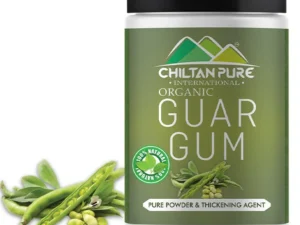Description
Lecithin: The Versatile Emulsifier You Need to Know
Lecithin might not be a household name, but it’s a common ingredient found in a surprising number of foods and supplements. This naturally occurring substance plays a vital role in our bodies and in the products we use every day. But what exactly is lecithin, and why is it so important?
What is Lecithin?
Lecithin is a fatty substance found in plant and animal tissues. It’s a complex mixture of phospholipids, which are essential components of cell membranes. Think of lecithin as a building block for your cells, contributing to their structure and function.
Commercially, lecithin is primarily extracted from soybeans, sunflower seeds, and egg yolks. You’ll often see it listed as soy lecithin, sunflower lecithin, or egg lecithin on ingredient labels.
Key Benefits and Uses
Lecithin boasts a range of benefits and is used extensively across various industries:
- Emulsification: This is lecithin’s superstar quality. As an emulsifier, it helps bind together ingredients that normally don’t mix well, like oil and water. This is why it’s found in salad dressings, chocolate, and sauces, creating a smooth and stable texture.
- Food Industry Staple: Beyond emulsification, lecithin also acts as a preservative, stabilizer, and dough conditioner. It improves the shelf life of products, prevents separation, and enhances the texture of baked goods.
- Supplement for Health: Lecithin is often touted for its potential health benefits. Some believe it can help:
- Lower Cholesterol: Lecithin contains phosphatidylcholine, which can potentially help improve cholesterol levels by breaking down fats.
- Support Brain Function: Choline is a precursor to the neurotransmitter acetylcholine, which plays a role in memory and cognitive function.
- Improve Liver Health: Some studies suggest lecithin may help reduce fat accumulation in the liver.
- Aid Digestion: Lecithin can help emulsify fats in the digestive tract, potentially aiding absorption and digestion.
- Cosmetics and Skincare: Lecithin’s emollient properties make it a valuable ingredient in cosmetics and skincare products. It helps moisturize the skin, improve texture, and enhance the absorption of other ingredients. You’ll often find it in creams, lotions, and lipsticks.
Is Lecithin Safe?
Generally, lecithin is considered safe for consumption. However, some individuals may experience mild side effects such as bloating, nausea, or diarrhea, especially when taking high doses in supplement form.
- Soy Lecithin and Allergies: If you have a soy allergy, you might be concerned about soy lecithin. However, the processing of soy lecithin often removes most of the allergenic proteins. Still, if you’re highly allergic, consult your doctor before consuming products containing soy lecithin.
- Sunflower Lecithin: A Popular Alternative: Sunflower lecithin is becoming increasingly popular as an alternative to soy lecithin, especially for those with soy allergies or concerns about genetically modified organisms (GMOs), as sunflower seeds are not typically genetically modified.
Choosing the Right Lecithin
When choosing lecithin supplements or products containing lecithin, consider the following:
- Source: Decide if you prefer soy lecithin, sunflower lecithin, or egg lecithin based on your dietary needs and preferences.
- Purity: Look for products from reputable manufacturers to ensure purity and quality.
- Form: Lecithin supplements are available in various forms, including capsules, powders, and granules. Choose the form that best suits your needs.
In Conclusion
Lecithin is a versatile substance with a wide range of applications, from improving the texture of our food to potentially contributing to our health. Whether you’re looking for a natural emulsifier for your cooking or considering lecithin supplements for their potential health benefits, understanding its properties and uses can help you make informed choices. Remember to always consult with a healthcare professional before starting any new supplement regimen.












Reviews
There are no reviews yet.